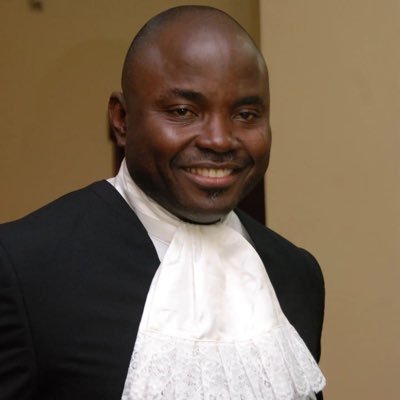- Watch video of Okutepa speaking about irresponsible politicians and judiciary
Outspoken Senior Advocate of Nigeria (SAN), Jibrin Samuel Okutepa, has cautioned that to deepen democracy, particularly given the controversies that trailed the conduct of elections in Nigeria, “Nigerian judiciary must be ready to do what it is set up to do.”
Okutepa who delivered a keynote address titled: The Role of the Judiciary in Nigeria’s Democratic Sustainability at the first Inter-Party Advisory Council (IPAC) roundtable held at Ladi Kwali Hall, Abuja Continental Hotel, on Thursday in Abuja, noted that: “Many have cast doubts on the capacity of the judiciary to be above board given, many controversies that attended to some decisions in some political cases.”
This according to him “should not be so.”
“The role of the judiciary, particularly through election tribunals, is indispensable for upholding democratic principles in Nigeria. The judiciary ensures the fair resolution of electoral disputes, upholds the rule of law, promotes accountability, safeguards democratic values, boosts public confidence in democracy, and sets legal precedents for the future. The commitment of the judiciary to these responsibilities is crucial in securing a robust and thriving democracy in Nigeria, where the voice of the people is respected, and the democratic process is transparent and just.
“Our electoral jurisprudence needs to be looked deeply into by our judiciary. The old orders and some archaic precedents and principles that put road blocks to democratic growth and development must be departed from and new set of rules to guide the political behaviours of our political class must be set.”
Also stressing the need for the judiciary to avoid technicalities that can lead to injustice, Okutepa cited several instances where the judiciary’s emphasis on technicalities has led to inconsistent decisions and undermined public trust.
The fiery social critic urged the judiciary to adopt a balanced approach that considers the broader interest of the community and the need for redress in election-related grievances.
“True democracy is far from Nigeria. The news making rounds in our elections since the advent of civilian rule in most cases are worrisome and frightening to say the least.
“Substantial justice, which is actual and concrete justice, is justice personified. It is secreted in the elbows of cordial and fair jurisprudence with a human face and understanding. Technical justice, in reality, is not justice but a caricature of it,” he said.
The event brought together stakeholders from the judiciary, political parties, and civil society organizations, identified key issues affecting the judiciary’s role in democratic sustainability.
IPAC National Chairman, Yusuf Mamman Dantalle, equally expressed concern about the judiciary’s role in Nigeria’s democratic process.
He cited recent cases of conflicting court orders and judgments, which he said have led to public lack of confidence in the administration of justice.
“Unfortunately, there seems to be anarchy and rebellion in the temple of justice – conflicting courts orders/judgements by courts of coordinate jurisdiction,” Dantalle stressed.
In his remarks, the National Chairman of the All Progressives Congress (APC), Abdullahi Ganduje, emphasized the importance of an independent judiciary in ensuring democratic sustainability.
He noted that the judiciary faces various challenges, including inadequate funding, delays in justice delivery, and judicial independence.
Ganduje called on stakeholders to support efforts to enhance transparency, accountability, and integrity within the judiciary.
“I believe one of the key pillars of a vibrant democracy is an independent judiciary, therefore, stakeholders in the democratic process must ensure that the judiciary remains free from external influences and interference,” he said.
Other participants at the roundtable identified constitutional interpretation and judicial review, dangers of conflicting court judgments, and judicial independence and accountability as key issues affecting the judiciary’s role in democratic sustainability
They recommended that the judiciary take a hard look at principles of electoral jurisprudence that aid and abet rigging and imposition of candidates.
They also called for the introduction of forensic technology and automation in the electoral process to enhance transparency and credibility.
The roundtable communique emphasized the need for the judiciary to maintain a distance from politics and politicians, and to prioritize substantial justice over technicalities.
The document also called for legislation to entrench fixed arbitration panels in political parties to deal with internal disputes.
Okutepa in the video speaks about irresponsible politicians and judiciary.





